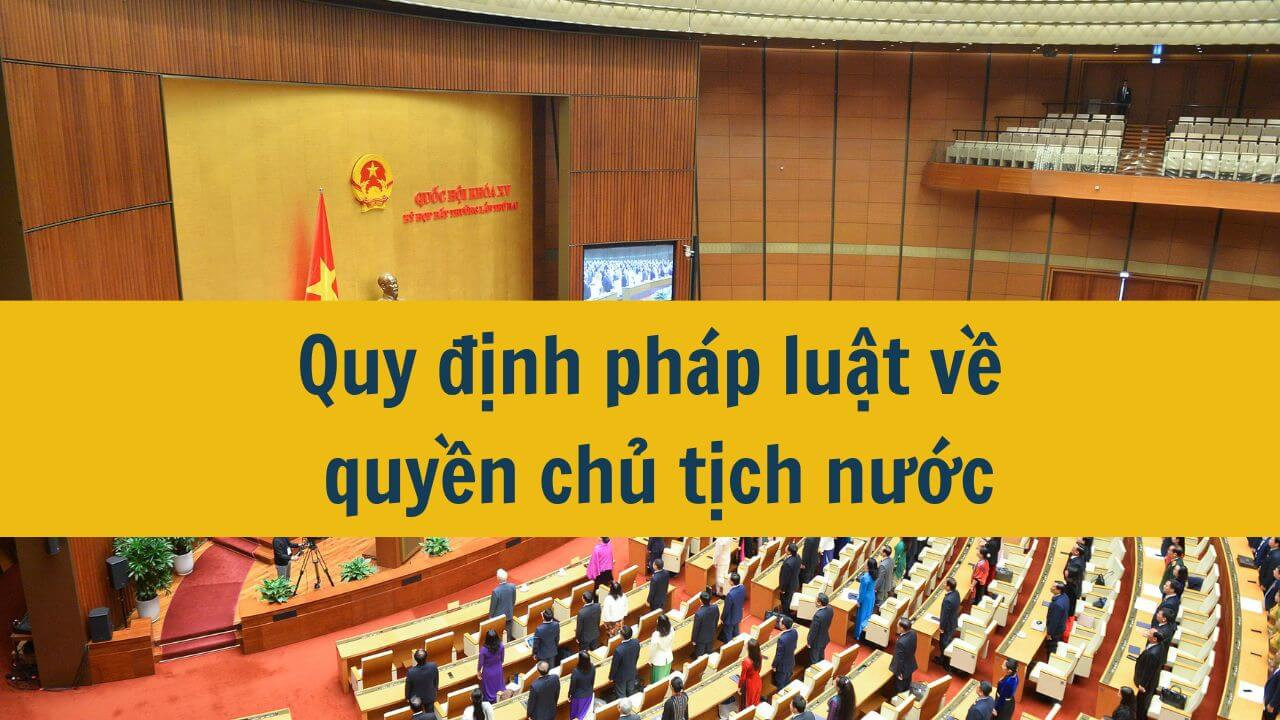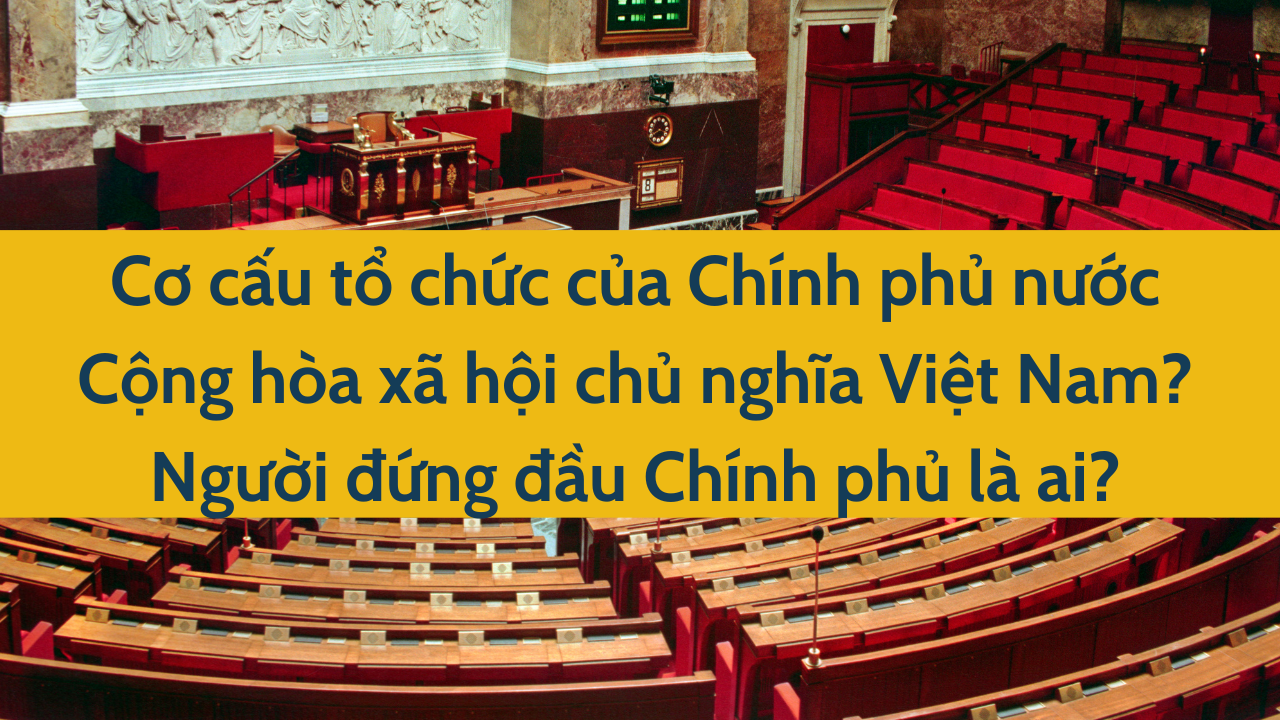 Tìm kiếm
Tìm kiếm
Chương VII Hiến pháp 2013: Chính phủ
| Số hiệu: | khongso | Loại văn bản: | Hiến pháp |
| Nơi ban hành: | Quốc hội | Người ký: | Nguyễn Sinh Hùng |
| Ngày ban hành: | 28/11/2013 | Ngày hiệu lực: | 01/01/2014 |
| Ngày công báo: | 29/12/2013 | Số công báo: | Từ số 1003 đến số 1004 |
| Lĩnh vực: | Bộ máy hành chính, Quyền dân sự | Tình trạng: | Còn hiệu lực |
TÓM TẮT VĂN BẢN
Một số điểm mới trong Hiến pháp 2013
Ngày 28/11/2013, Quốc hội đã thông qua Hiến pháp 2013 và Nghị quyết 64/2013/QH13 quy định một số điểm thi hành Hiến pháp 2013.
Theo đó, Hiến pháp 2013 có hiệu lực kể từ ngày 01/01/2014 và có nhiều điểm mới so với Hiến pháp 1992 (Chỉ giữ nguyên 7 điều, bổ sung 12 điều mới và sửa đổi 101 điều), đương cử như:
- Chương X là quy định mới hoàn toàn về Hội đồng bầu cử quốc gia, Kiểm toán nhà nước;
- Ghi nhận quyền sống; quy định quyền hiến mô, bộ phận cơ thể người, hiến xác;
- Mọi người có quyền tự do kinh doanh trong những ngành nghề mà pháp luật không cấm (đây là quy định tiến bộ so với Hiến pháp 1992);
Đồng thời quy định, các văn bản pháp luật ban hành trước ngày 01/01/2014 phải được rà soát lại để sửa đổi, bổ sung hoặc ban hành mới cho phù hợp với Hiến pháp 2013.
Việc sửa đổi Luật tổ chức Quốc hội, Chính phủ, Tòa án nhân dân; ban hành mới Luật tổ chức chính quyền địa phương… phải được trình Quốc hội xem xét thông qua chậm nhất vào tháng 10/2015.
Văn bản tiếng việt
Văn bản tiếng anh
Chính phủ là cơ quan hành chính nhà nước cao nhất của nước Cộng hòa xã hội chủ nghĩa Việt Nam, thực hiện quyền hành pháp, là cơ quan chấp hành của Quốc hội.
Chính phủ chịu trách nhiệm trước Quốc hội và báo cáo công tác trước Quốc hội, Ủy ban thường vụ Quốc hội, Chủ tịch nước.
1. Chính phủ gồm Thủ tướng Chính phủ, các Phó Thủ tướng Chính phủ, các Bộ trưởng và Thủ trưởng cơ quan ngang bộ.
Cơ cấu, số lượng thành viên Chính phủ do Quốc hội quyết định.
Chính phủ làm việc theo chế độ tập thể, quyết định theo đa số.
2. Thủ tướng Chính phủ là người đứng đầu Chính phủ, chịu trách nhiệm trước Quốc hội về hoạt động của Chính phủ và những nhiệm vụ được giao; báo cáo công tác của Chính phủ, Thủ tướng Chính phủ trước Quốc hội, Ủy ban thường vụ Quốc hội, Chủ tịch nước.
3. Phó Thủ tướng Chính phủ giúp Thủ tướng Chính phủ làm nhiệm vụ theo sự phân công của Thủ tướng Chính phủ và chịu trách nhiệm trước Thủ tướng Chính phủ về nhiệm vụ được phân công. Khi Thủ tướng Chính phủ vắng mặt, một Phó Thủ tướng Chính phủ được Thủ tướng Chính phủ ủy nhiệm thay mặt Thủ tướng Chính phủ lãnh đạo công tác của Chính phủ.
4. Bộ trưởng, Thủ trưởng cơ quan ngang bộ chịu trách nhiệm cá nhân trước Thủ tướng Chính phủ, Chính phủ và Quốc hội về ngành, lĩnh vực được phân công phụ trách, cùng các thành viên khác của Chính phủ chịu trách nhiệm tập thể về hoạt động của Chính phủ.
Chính phủ có những nhiệm vụ và quyền hạn sau đây:
1. Tổ chức thi hành Hiến pháp, luật, nghị quyết của Quốc hội, pháp lệnh, nghị quyết của Ủy ban thường vụ Quốc hội, lệnh, quyết định của Chủ tịch nước;
2. Đề xuất, xây dựng chính sách trình Quốc hội, Ủy ban thường vụ Quốc hội quyết định hoặc quyết định theo thẩm quyền để thực hiện nhiệm vụ, quyền hạn quy định tại Điều này; trình dự án luật, dự án ngân sách nhà nước và các dự án khác trước Quốc hội; trình dự án pháp lệnh trước Ủy ban thường vụ Quốc hội;
3. Thống nhất quản lý về kinh tế, văn hóa, xã hội, giáo dục, y tế, khoa học, công nghệ, môi trường, thông tin, truyền thông, đối ngoại, quốc phòng, an ninh quốc gia, trật tự, an toàn xã hội; thi hành lệnh động viên hoặc động viên cục bộ, lệnh ban bố tình trạng khẩn cấp và các biện pháp cần thiết khác để bảo vệ Tổ quốc, bảo đảm tính mạng, tài sản của Nhân dân;
4. Trình Quốc hội quyết định thành lập, bãi bỏ bộ, cơ quan ngang bộ; thành lập, giải thể, nhập, chia, điều chỉnh địa giới hành chính tỉnh, thành phố trực thuộc trung ương, đơn vị hành chính - kinh tế đặc biệt; trình Ủy ban thường vụ Quốc hội quyết định thành lập, giải thể, nhập, chia, điều chỉnh địa giới đơn vị hành chính dưới tỉnh, thành phố trực thuộc trung ương;
5. Thống nhất quản lý nền hành chính quốc gia; thực hiện quản lý về cán bộ, công chức, viên chức và công vụ trong các cơ quan nhà nước; tổ chức công tác thanh tra, kiểm tra, giải quyết khiếu nại, tố cáo, phòng, chống quan liêu, tham nhũng trong bộ máy nhà nước; lãnh đạo công tác của các bộ, cơ quan ngang bộ, cơ quan thuộc Chính phủ, Ủy ban nhân dân các cấp; hướng dẫn, kiểm tra Hội đồng nhân dân trong việc thực hiện văn bản của cơ quan nhà nước cấp trên; tạo điều kiện để Hội đồng nhân dân thực hiện nhiệm vụ, quyền hạn do luật định;
6. Bảo vệ quyền và lợi ích của Nhà nước và xã hội, quyền con người, quyền công dân; bảo đảm trật tự, an toàn xã hội;
7. Tổ chức đàm phán, ký điều ước quốc tế nhân danh Nhà nước theo ủy quyền của Chủ tịch nước; quyết định việc ký, gia nhập, phê duyệt hoặc chấm dứt hiệu lực điều ước quốc tế nhân danh Chính phủ, trừ điều ước quốc tế trình Quốc hội phê chuẩn quy định tại khoản 14 Điều 70; bảo vệ lợi ích của Nhà nước, lợi ích chính đáng của tổ chức và công dân Việt Nam ở nước ngoài;
8. Phối hợp với Ủy ban trung ương Mặt trận Tổ quốc Việt Nam và cơ quan trung ương của tổ chức chính trị - xã hội trong việc thực hiện nhiệm vụ, quyền hạn của mình.
Nhiệm kỳ của Chính phủ theo nhiệm kỳ của Quốc hội. Khi Quốc hội hết nhiệm kỳ, Chính phủ tiếp tục làm nhiệm vụ cho đến khi Quốc hội khóa mới thành lập Chính phủ.
Thủ tướng Chính phủ do Quốc hội bầu trong số đại biểu Quốc hội.
Thủ tướng Chính phủ có những nhiệm vụ và quyền hạn sau đây:
1. Lãnh đạo công tác của Chính phủ; lãnh đạo việc xây dựng chính sách và tổ chức thi hành pháp luật;
2. Lãnh đạo và chịu trách nhiệm về hoạt động của hệ thống hành chính nhà nước từ trung ương đến địa phương, bảo đảm tính thống nhất và thông suốt của nền hành chính quốc gia;
3. Trình Quốc hội phê chuẩn đề nghị bổ nhiệm, miễn nhiệm, cách chức Phó Thủ tướng Chính phủ, Bộ trưởng và Thành viên khác của Chính phủ; bổ nhiệm, miễn nhiệm, cách chức Thứ trưởng, chức vụ tương đương thuộc bộ, cơ quan ngang bộ; phê chuẩn việc bầu, miễn nhiệm và quyết định điều động, cách chức Chủ tịch, Phó Chủ tịch Ủy ban nhân dân tỉnh, thành phố trực thuộc trung ương;
4. Đình chỉ việc thi hành hoặc bãi bỏ văn bản của Bộ trưởng, Thủ trưởng cơ quan ngang bộ, Ủy ban nhân dân, Chủ tịch Ủy ban nhân dân tỉnh, thành phố trực thuộc trung ương trái với Hiến pháp, luật và văn bản của cơ quan nhà nước cấp trên; đình chỉ việc thi hành nghị quyết của Hội đồng nhân dân tỉnh, thành phố trực thuộc trung ương trái với Hiến pháp, luật và văn bản của cơ quan nhà nước cấp trên, đồng thời đề nghị Ủy ban thường vụ Quốc hội bãi bỏ;
5. Quyết định và chỉ đạo việc đàm phán, chỉ đạo việc ký, gia nhập điều ước quốc tế thuộc nhiệm vụ, quyền hạn của Chính phủ; tổ chức thực hiện điều ước quốc tế mà Cộng hòa xã hội chủ nghĩa Việt Nam là thành viên;
6. Thực hiện chế độ báo cáo trước Nhân dân thông qua các phương tiện thông tin đại chúng về những vấn đề quan trọng thuộc thẩm quyền giải quyết của Chính phủ và Thủ tướng Chính phủ.
1. Bộ trưởng, Thủ trưởng cơ quan ngang bộ là thành viên Chính phủ và là người đứng đầu bộ, cơ quan ngang bộ, lãnh đạo công tác của bộ, cơ quan ngang bộ; chịu trách nhiệm quản lý nhà nước về ngành, lĩnh vực được phân công; tổ chức thi hành và theo dõi việc thi hành pháp luật liên quan đến ngành, lĩnh vực trong phạm vi toàn quốc.
2. Bộ trưởng, Thủ trưởng cơ quan ngang bộ báo cáo công tác trước Chính phủ, Thủ tướng Chính phủ; thực hiện chế độ báo cáo trước Nhân dân về những vấn đề quan trọng thuộc trách nhiệm quản lý.
Chính phủ, Thủ tướng Chính phủ, Bộ trưởng, Thủ trưởng cơ quan ngang bộ ban hành văn bản pháp luật để thực hiện nhiệm vụ, quyền hạn của mình, kiểm tra việc thi hành các văn bản đó và xử lý các văn bản trái pháp luật theo quy định của luật.
Chủ tịch Ủy ban trung ương Mặt trận Tổ quốc Việt Nam và người đứng đầu cơ quan trung ương của tổ chức chính trị - xã hội được mời tham dự phiên họp của Chính phủ khi bàn các vấn đề có liên quan.
The Government is the highest state administrative body of the Socialist Republic of Vietnam, shall exercise executive power, and is the executive body of the National Assembly.
The Government is responsible to the National Assembly and shall report on its work to the National Assembly, the Standing Committee of the National Assembly and the President.
1. The Government is composed of the Prime Minister, Deputy Prime Ministers, Ministers, and Heads of ministerial-level agencies.
The structure and number of members of the Government shall be decided by the National Assembly.
The Government shall work on a collegial basis and make its decisions by a vote of the majority.
2. The Prime Minister is the head of the Government and responsible to the National Assembly for the work of the Government and assigned tasks; and shall report on the work of the Government and the Prime Minister to the National Assembly, the Standing Committee of the National Assembly and the President.
3. Deputy Prime Ministers shall assist the Prime Minister in his or her work as assigned by the Prime Minister, and are responsible to the Prime Minister for their assigned tasks. In the absence of the Prime Minister, a Deputy Prime Minister delegated by the Prime Minister shall lead the work of the Government on behalf of the Prime Minister.
4. Ministers and Heads of ministerial-level agencies are personally responsible to the Prime Minister, Government and National Assembly for the sectors and fields under their charge and, together with other members of Government, shall assume the collective responsibility for the work of the Government.
The Government has the following tasks and powers:
1. To organize the implementation of the Constitution, laws and resolutions of the National Assembly, ordinances and resolutions of the Standing Committee of the National Assembly, and orders and decisions of the President;
2. To propose and formulate policies to be submitted to the National Assembly or the Standing Committee of the National Assembly for decision or decide on policies according to its competence, for the performance of its tasks and the exercise of its powers set out in this Article; to submit draft laws, draft state budget estimates and other projects to the National Assembly; and to submit draft ordinances to the Standing Committee of the National Assembly;
3. To perform the unified management of the economy, culture, social affairs, education, health, science, technology, environment, information, communications, external relations, national defense, national security, and social order and safety; to carry out orders on general mobilization or partial mobilization or orders to proclaim a state of emergency, and take other necessary measures to defend the Fatherland and to protect the People’s lives and property;
4. To propose the National Assembly for decision the establishment or abolition of ministries or ministerial-level agencies; the establishment, dissolution, consolidation, separation, or adjustment of the administrative boundaries of, provinces, centrally run cities or special administrative-economic units; to propose the Standing Committee of the National Assembly for decision the establishment, dissolution, consolidation, separation or adjustment of the boundaries of, administrative units under the provinces and centrally run cities;
5. To perform the unified management of the national administration system; to manage cadres, civil servants, public employees, and the public service in state agencies; to organize inspection and control work, the settlement of complaints and denunciations, and the fight against bureaucracy and corruption in the state apparatus; to lead the work of the ministries, ministerial-level agencies, government-attached agencies, and People’s Committees at all levels; to guide and examine the People’s Councils in their implementation of the documents of state agencies at higher levels, to create the conditions for the People’s Councils to perform their tasks and exercise their powers which are prescribed by a law;
6. To protect the rights and interests of the State and society, human rights and citizens’ rights; and to ensure social order and safety;
7. To negotiate and conclude treaties in the name of the State, as authorized by the President; to decide on the conclusion, accession to, ratification of, or withdrawal from, treaties in the name of the Government, except for treaties to be submitted to the National Assembly for ratification as specified in Clause 14, Article 70; to protect the interests of the State and the legitimate interests of Vietnamese organizations or citizens in foreign countries;
8. To coordinate with the Central Committee of the Vietnam Fatherland Front and central bodies of the socio-political organizations in the performance of the tasks and the exercise of the powers of the Government.
The term of the Government follows the term of the National Assembly. At the expiration of the term of the National Assembly, the Government shall remain in office until a new Government is elected by the succeeding National Assembly.
The Prime Minister shall be elected by the National Assembly from among its deputies.
The Prime Minister has the following tasks and powers:
1. To lead the work of the Government; to lead the formulation of policies and organize the implementation of laws;
2. To lead and take responsibility for the work of the state administration system from the central to the local level, ensuring the consistency and continuity of the national administration system;
3. To submit to the National Assembly for approval proposals on the appointment, relief from duty or dismissal of Deputy Prime Ministers, Ministers or other members of the Government; to appoint, relieve from duty or dismiss Deputy Ministers or officials of equal rank of ministries or ministerial-level agencies; to approve the election and relief from duty, and to decide on the transfer or dismissal of Chairpersons and Vice Chairpersons of the People’s Committees of provinces or centrally run cities;
4. To suspend the implementation of, or annul the documents, of Ministers, Heads of ministerial-level agencies, People’s Committees, Chairpersons of the People’s Committees of provinces or centrally run cities that contravene the Constitution, laws or documents of state agencies at higher levels; to suspend the implementation of resolutions of the People’s Councils of provinces or centrally run cities that contravene the Constitution, laws or documents of state agencies at higher levels and, at the same time, to propose the Standing Committee of the National Assembly to annul them;
5. To decide on and direct the negotiation of, and to direct the conclusion, and accession to, or ratification of, treaties within the scope of the tasks and powers of the Government; to organize the implementation of treaties to which the Socialist Republic of Vietnam is a contracting party;
6. To make reports to the People through the mass media on important issues falling within the competence of the Government and the Prime Minister.
1. Ministers and Heads of ministerial-level agencies are members of the Government, shall preside over their ministries or ministerial-level agencies, and shall lead the work of their ministries or ministerial-level agencies; shall perform the state management of the sectors and fields under their charge; and shall organize and monitor nationwide the implementation of laws concerning their sectors and fields.
2. Ministers and Heads of ministerial-level agencies shall report on their work to the Government and Prime Minister; and make reports to the People on important issues under their management.
The Government, the Prime Minister, Ministers, and Heads of ministerial-level agencies shall promulgate legal documents to perform their tasks and exercise their powers, review the implementation of those documents, and deal with unlawful documents in accordance with law.
The President of the Central Committee of the Vietnam Fatherland Front and heads of central bodies of socio-political organizations may be invited to meetings of the Government that discuss relevant issues.
Văn bản liên quan
Cập nhật
Bài viết liên quan
Bạo hành trẻ em bị phạt thế nào? Có phải đi tù không mới nhất 2025?

Bạo hành trẻ em bị phạt thế nào? Có phải đi tù không mới nhất 2025?
Bạo hành trẻ em luôn là một vấn đề nghiêm trọng trong xã hội, không chỉ ảnh hưởng đến sự phát triển của trẻ mà còn gây tổn hại lớn đến tương lai của các em. Vấn đề này đã thu hút sự quan tâm đặc biệt của cộng đồng và pháp luật. Theo các quy định mới nhất của pháp luật Việt Nam vào năm 2025, hành vi bạo hành trẻ em sẽ bị xử lý nghiêm minh, với những hình phạt nặng nề đối với người phạm tội. Trong bài viết này, chúng ta sẽ tìm hiểu về các hình thức bạo hành trẻ em, mức độ phạt và những chế tài xử lý đối với hành vi này, đặc biệt là việc bị đi tù và mức án cụ thể trong trường hợp vi phạm. 24/12/2024Tài sản gắn liền với đất gồm những loại nào? 02 tài sản gắn liền với đất được cấp sổ đỏ mới nhất 2025

Tài sản gắn liền với đất gồm những loại nào? 02 tài sản gắn liền với đất được cấp sổ đỏ mới nhất 2025
Tài sản gắn liền với đất là những tài sản không thể tách rời khỏi đất đai, thường có giá trị lớn và chịu sự quản lý chặt chẽ của pháp luật. Những tài sản này có thể được chuyển nhượng, cho thuê, thế chấp và có ảnh hưởng trực tiếp đến quyền sử dụng đất của chủ sở hữu. Cùng với sự phát triển của các quy định pháp lý, việc cấp Giấy chứng nhận quyền sử dụng đất (sổ đỏ) đối với những tài sản này cũng ngày càng rõ ràng hơn. Vậy, trong năm 2025, những tài sản gắn liền với đất nào sẽ được cấp sổ đỏ theo quy định mới nhất? Cùng tìm hiểu 02 loại tài sản gắn liền với đất được cấp sổ đỏ hiện nay. 09/12/2024Quyền sử dụng đất là gì? Quyền sử dụng đất được xếp vào tài sản loại nào?

Quyền sử dụng đất là gì? Quyền sử dụng đất được xếp vào tài sản loại nào?
Quyền sử dụng đất là gì và quyền sử dụng đất được xếp vào tài sản loại nào? Quyền sử dụng đất không chỉ liên quan đến việc sử dụng một diện tích đất mà còn gắn liền với những quyền lợi, nghĩa vụ pháp lý và các giao dịch tài chính. Việc xác định quyền sử dụng đất thuộc loại tài sản nào cũng đóng vai trò quan trọng trong việc áp dụng pháp luật, bảo vệ quyền lợi hợp pháp của người sử dụng đất. 06/12/2024Sử dụng bao lì xì in hình sổ đỏ bị phạt 3 năm tù có đúng không?

Sử dụng bao lì xì in hình sổ đỏ bị phạt 3 năm tù có đúng không?
Việc tặng lì xì là truyền thống quen thuộc của người Việt mỗi dịp Tết. Gần đây, bao lì xì in hình sổ đỏ trở nên phổ biến, nhưng cũng gây tranh cãi về tính hợp pháp. Liệu sử dụng bao lì xì sổ đỏ có vi phạm pháp luật hay không? 19/11/2024Phân tích các nguyên tắc cơ bản của luật lao động hiện nay ?

Phân tích các nguyên tắc cơ bản của luật lao động hiện nay ?
Nguyên tắc của ngành luật, theo quan niệm của lí luận chung về nhà nước và pháp luật, được hiểu là những nguyên lí, tư tưởng chủ đạo, mang tính xuất phát điểm xuyên suốt toàn bộ quá trình soạn thảo, ban hành, giải thích, thực thi, áp dụng pháp luật. 15/11/2024Sàm sỡ người khác có bị xem là vi phạm pháp luật hay không?

Sàm sỡ người khác có bị xem là vi phạm pháp luật hay không?
Thỉnh thoảng ở nơi công cộng hay nơi làm việc một số bạn, đặc biệt là nữ thường gặp phải những trường hợp bị sàm sỡ, bị quấy rối tình dục bởi những tên “yêu râu xanh” hay chính sếp của mình. Nhiều bạn cảm thấy hoảng loạn, lo sợ và ngại nói ra nhưng không biết phải giải quyết vấn đề này như thế nào? 15/11/2024Những quy định mới về quyền con người trong Hiến pháp năm 2013

Những quy định mới về quyền con người trong Hiến pháp năm 2013
Hiến pháp năm 2013 đã đặt nền móng cho thời kỳ đẩy mạnh hội nhập quốc tế và phát triển của đất nước ta. So với các bản hiến pháp trước đây, đặc biệt là Hiến pháp 1992, Hiến pháp 2013 có những phát triển mới trong chế định về quyền con người 20/11/2024Quy định pháp luật về quyền chủ tịch nước năm 2024

Quy định pháp luật về quyền chủ tịch nước năm 2024
Quyền chủ tịch nước là một khái niệm trong các văn bản pháp luật và thảo luận chính trị. Thực tế trong một số hoàn cảnh nhằm đảm bảo an ninh, ổn định và phát triển của đất nước, cần có người thay Chủ tịch nước giữ quyền Chủ tịch nước. Việc làm sáng tỏ các quy định pháp luật liên quan đến quyền chủ tịch nước sẽ giúp nâng cao nhận thức của người dân về vai trò của Nhà nước trong đời sống xã hội. 12/11/2024Thủ tướng Chính phủ Nước Cộng hòa xã hội chủ nghĩa Việt Nam do ai bầu ra?

Thủ tướng Chính phủ Nước Cộng hòa xã hội chủ nghĩa Việt Nam do ai bầu ra?
Trong bài viết này, chúng ta sẽ cùng khám phá một câu hỏi quan trọng về hệ thống chính trị Việt Nam. "Thủ tướng Chính phủ Nước Cộng hòa xã hội chủ nghĩa Việt Nam do ai bầu ra?" Qua đó, bài viết sẽ cung cấp cái nhìn tổng quan về quy trình bầu cử Thủ tướng, vai trò của Quốc hội trong việc xác nhận các chức danh lãnh đạo, cũng như ý nghĩa của cơ chế này đối với sự phát triển và ổn định của đất nước. 10/11/2024Cơ cấu tổ chức của Chính phủ nước Cộng hòa xã hội chủ nghĩa Việt Nam? Người đứng đầu Chính phủ là ai?


 Hiến pháp 2013 (Bản Word)
Hiến pháp 2013 (Bản Word)
 Hiến pháp 2013 (Bản Pdf)
Hiến pháp 2013 (Bản Pdf)